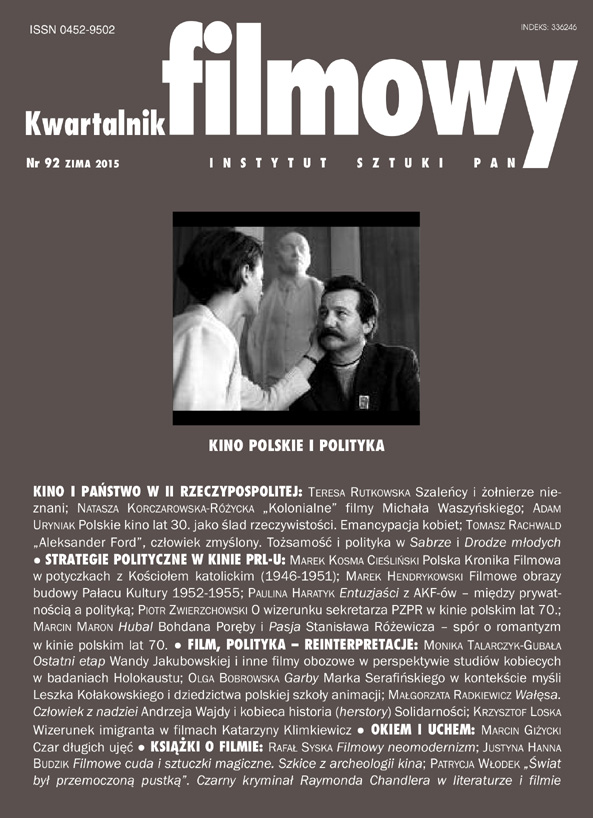„Aleksander Ford”, człowiek zmyślony. Tożsamość i polityka w „Sabrze” (1933) i „Drodze młodych” (1936)
“Aleksander Ford”, an Invented Man. Identity and Politics in „Sabra” (1933) and „Children Must Laugh” (1936)
Author(s): Tomasz RachwaldSubject(s): Fine Arts / Performing Arts, Film / Cinema / Cinematography
Published by: Instytut Sztuki Polskiej Akademii Nauk
Keywords: Aleksander Ford; communism; internationalism; Jewish cinema
Summary/Abstract: In the article the author analyses two of the surviving films by Aleksander Ford made before1939: „Sabra” (1933) and „Children Must Laugh” („Mir kumen on”, 1936). The aim of the analysis is to demonstrate the presence in them of traces of communist ideology of internationalism, standing in contradiction with Bukharin’s idea of the Socialism in One Country implemented by Ford in „Young Chopin” (1951) and to some extent in the „Teutonic Knights” (1960). Rachwald examines the presence of ethnic themes in these films, noting that Ford pointed to the strength of bonds existing within social class and the weakness and transience of bonds based on ethnicity and nationality. Given this, the author also points out to the practice of changing one’s surname common among the artists with Jewish background (e.g. Ford, Waszyński) working in the Polish film industry in the interwar period. In conclusion the article presents an ideological profile of a young director, who despite his engagement with the Polish Communist Party, at the time was closer to the Second and not the Third International.
Journal: Kwartalnik Filmowy
- Issue Year: 2015
- Issue No: 92
- Page Range: 61-74
- Page Count: 14
- Language: Polish

